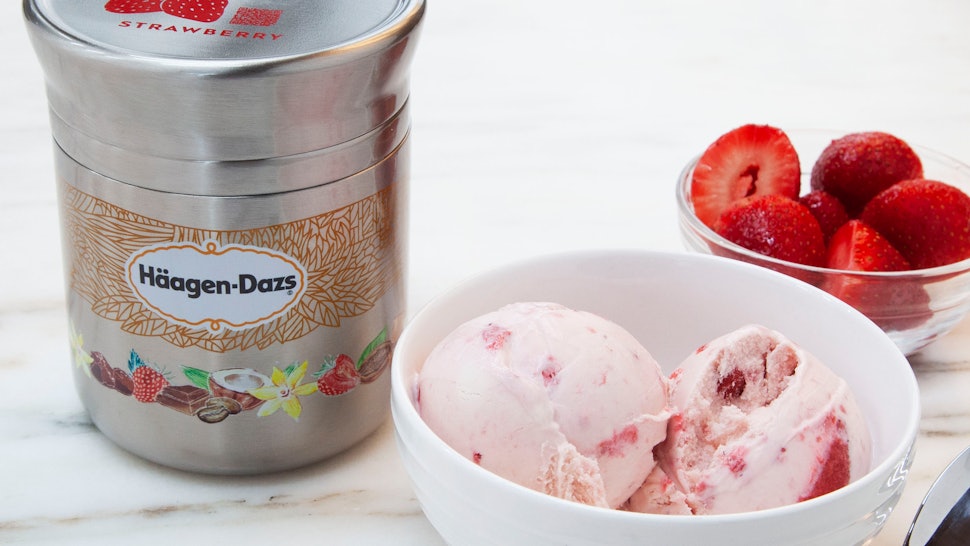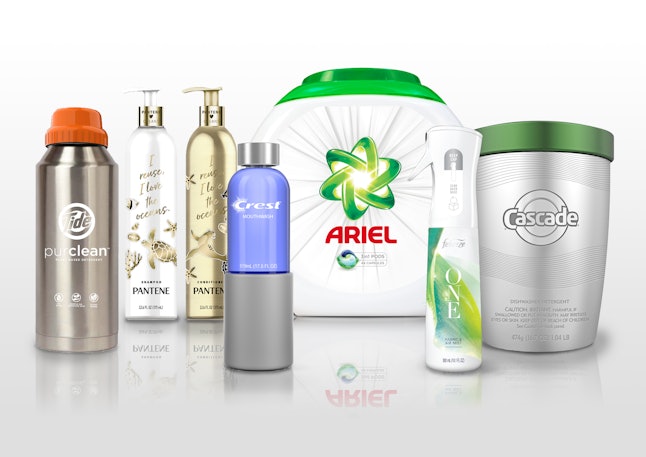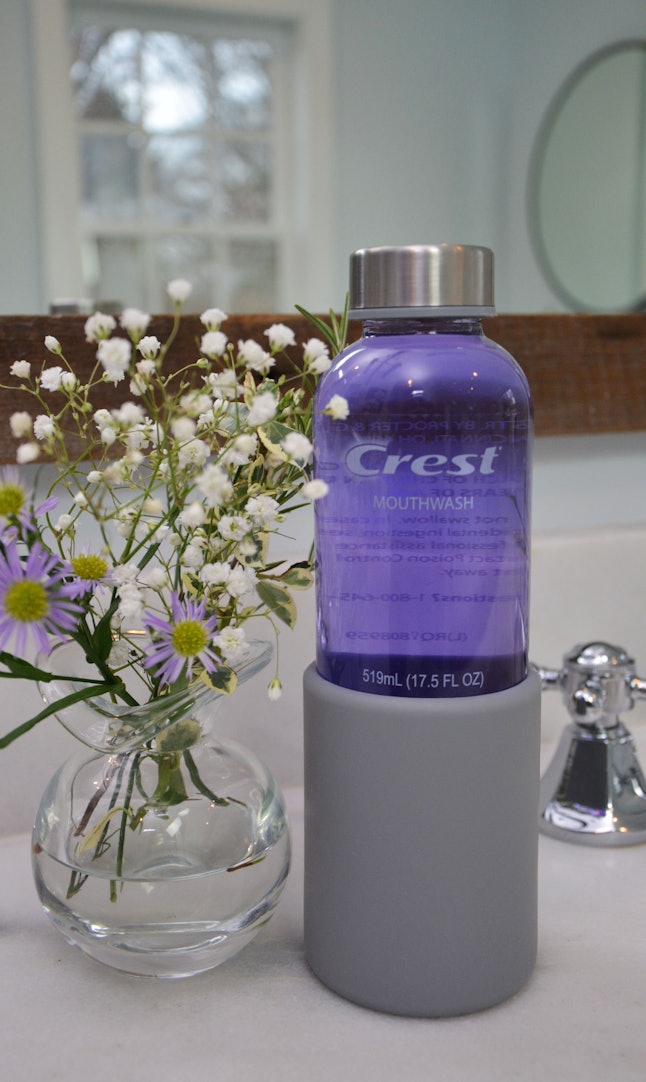Loop quer reinventar o futuro da embalagem
Hoje parece muito hype fazer compostagem caseira e ter canudinhos reutilizáveis. Mas gerações atrás tinham hábitos ecologicamente muito mais corretos e viáveis do que os atuais.
 Tom Szaky is a leading force in the sustainability world. The founder of TerraCycle, a company that finds ways to recycle hard-to-recycle items (think everything from snack wrappers to backpacks to sponges), Szaky made headlines most recently for, Loop, his new initiative that gives companies the option to sell their products in reusable packaging that can be collected, cleaned, and reused multiple times. So far, Unilever, Procter & Gamble Company, Coca-Cola, and PepsiCo, among others, have signed onto it. The combined reach of these corporations is obviously huge, so this innovation could prove game-changing when it pilots this spring.
If Szaky has anything to do with it, the end of single-use plastic packaging is near. Here, he busts some of the top myths standing in the way of the reusable economy he's helping to build:
Tom Szaky is a leading force in the sustainability world. The founder of TerraCycle, a company that finds ways to recycle hard-to-recycle items (think everything from snack wrappers to backpacks to sponges), Szaky made headlines most recently for, Loop, his new initiative that gives companies the option to sell their products in reusable packaging that can be collected, cleaned, and reused multiple times. So far, Unilever, Procter & Gamble Company, Coca-Cola, and PepsiCo, among others, have signed onto it. The combined reach of these corporations is obviously huge, so this innovation could prove game-changing when it pilots this spring.
If Szaky has anything to do with it, the end of single-use plastic packaging is near. Here, he busts some of the top myths standing in the way of the reusable economy he's helping to build:



 If you’ve ever heard your older family members reminisce about days of old when milkmen used to deliver milk in reusable glass bottles every morning, imagining such a thing might seem kind of quaint and old timey. But those old-school milk deliveries were onto something when it comes to minimizing waste. In an effort to revive and update the grocery home delivery model, Loop, a new zero-waste consumer goods delivery platform, is launching this spring in the United States and France. This basically means that, come spring, you can get your groceries delivered in reusable packaging, and nothing gets thrown out. According to Adele Peters writing for Fast Company, once you’ve cleared out all your (super cute) stainless steel containers, you send them back to Loop, where they get cleaned, sterilized, and reused for other customers.
According to the brand’s official website, Loop is partnering with a slew of top brands to make “your everyday essentials … available in durable, functional packaging that’s beautiful enough to display.” Instead of getting one box delivered every month, as is typical with delivery subscriptions, Loop will automatically resend items as you return your containers, so your supplies get replenished as you need them. It was not immediately apparent how the prices for these products will be different than buying them conventionally.
If you’ve ever heard your older family members reminisce about days of old when milkmen used to deliver milk in reusable glass bottles every morning, imagining such a thing might seem kind of quaint and old timey. But those old-school milk deliveries were onto something when it comes to minimizing waste. In an effort to revive and update the grocery home delivery model, Loop, a new zero-waste consumer goods delivery platform, is launching this spring in the United States and France. This basically means that, come spring, you can get your groceries delivered in reusable packaging, and nothing gets thrown out. According to Adele Peters writing for Fast Company, once you’ve cleared out all your (super cute) stainless steel containers, you send them back to Loop, where they get cleaned, sterilized, and reused for other customers.
According to the brand’s official website, Loop is partnering with a slew of top brands to make “your everyday essentials … available in durable, functional packaging that’s beautiful enough to display.” Instead of getting one box delivered every month, as is typical with delivery subscriptions, Loop will automatically resend items as you return your containers, so your supplies get replenished as you need them. It was not immediately apparent how the prices for these products will be different than buying them conventionally.
 Courtesy of Loop
Given that plastics are filling up our oceans and destroying marine life while adding to massive levels of pollution worldwide, according to Danielle Wiener-Bronner writing for CNN, zero-waste consumer solutions come not a moment too soon.
Tom Szaky, CEO and co-founder of Loop partner, TerraCycle, told Peters for Fast Company that “We run what is today the world’s largest supply chain on ocean plastic, collecting it and going into Unilever and Procter & Gamble products and so on. But every day, more and more gets put in the ocean, so no matter how much we clean the ocean, we’re never going to solve the problem. That’s really where Loop emerged: To us, the root cause of waste is not plastic, per se, it’s using things once, and that’s really what Loop tries to change as much as possible.”
Courtesy of Loop
Given that plastics are filling up our oceans and destroying marine life while adding to massive levels of pollution worldwide, according to Danielle Wiener-Bronner writing for CNN, zero-waste consumer solutions come not a moment too soon.
Tom Szaky, CEO and co-founder of Loop partner, TerraCycle, told Peters for Fast Company that “We run what is today the world’s largest supply chain on ocean plastic, collecting it and going into Unilever and Procter & Gamble products and so on. But every day, more and more gets put in the ocean, so no matter how much we clean the ocean, we’re never going to solve the problem. That’s really where Loop emerged: To us, the root cause of waste is not plastic, per se, it’s using things once, and that’s really what Loop tries to change as much as possible.”
 Courtesy of Loop
Each reusable Loop package is designed to last for at least 100 uses, Peters wrote, and product orders can be placed via the Loop website once the platform is launched. Your products will get delivered in a UPS-designed reusable tote, and as you use your stuff up, just toss the canisters back into the tote. You’ll then be able to either drop off your Loop bag at your nearest UPS, or schedule a pick-up from the Loop site. If you’d like to queue up to get on the waitlist for the upcoming rollout, you can sign up on the website’s home page.
About 300 products are slated for launch via the Loop platform, Wiener-Bronner wrote for CNN, including Tide brand laundry detergent, Crest oral health supplies, Häagen-Dazs ice cream, Pantene shampoo, and Nature’s Path Organic items. Peters also wrote that eight out of 10 of the major brands listed by Greenpeace as being primary contributors to the global plastics crisis are on board as part of the new platform.
Given the overwhelming scale of the global plastics crisis, eco-friendly solutions that revamp the way companies do packaging, is long overdue as a mainstream concern.
Courtesy of Loop
Each reusable Loop package is designed to last for at least 100 uses, Peters wrote, and product orders can be placed via the Loop website once the platform is launched. Your products will get delivered in a UPS-designed reusable tote, and as you use your stuff up, just toss the canisters back into the tote. You’ll then be able to either drop off your Loop bag at your nearest UPS, or schedule a pick-up from the Loop site. If you’d like to queue up to get on the waitlist for the upcoming rollout, you can sign up on the website’s home page.
About 300 products are slated for launch via the Loop platform, Wiener-Bronner wrote for CNN, including Tide brand laundry detergent, Crest oral health supplies, Häagen-Dazs ice cream, Pantene shampoo, and Nature’s Path Organic items. Peters also wrote that eight out of 10 of the major brands listed by Greenpeace as being primary contributors to the global plastics crisis are on board as part of the new platform.
Given the overwhelming scale of the global plastics crisis, eco-friendly solutions that revamp the way companies do packaging, is long overdue as a mainstream concern.

 But a massive change may be on the horizon. Loop—a new zero-waste platform spearheaded by TerraCycle (a waste company that works to recycle especially challenging materials).
A coalition of major brands—like Procter & Gamble, Nestle, PepsiCo, and Unilever—designed Loop to be convenient, affordable and unobtrusive for consumers. That’s right—we’re not talking about artisanal ice creams and high-end nut butters in reusable packaging. Loop will make many of America’s most popular products zero-waste—like Tide detergent, Häagen Dazs ice cream, Seventh Generation cleaning products, Pantene shampoo, Dove deodorant and Crest mouthwash.
And they’ll deliver them to your door and pick up the empty container up when you’re done, like a modern milkman.
HOW LOOP WILL WORK
When you order your deodorant or detergent or whatever, you’ll pay a small deposit for the bottle. Then, the company will deliver the product in a super-durable, reusable tote, designed by engineers at UPS to withstand many abusive uses. When you finish your products, you can throw them back into the tote. When the tote is full, you simply request a delivery person to pick it up from the Loop website or drop it off at a UPS location.
Everything in the system is designed to withstand at least 100 uses, which is a major step up from the use-and-toss system we have in place right now.
Even if you don’t like the big brands that are partnered with the service, you have to admit that making zero waste a part of the average consumer’s shopping experience would be a major environmental win. Loop is launching its pilot programs this year. As early as this spring, consumers will be able to take part in this new sustainability initiative in both New York City and Paris.
After that, who knows. If Loop is a success, maybe you’ll be able to buy your favorite ice cream flavors in a stainless steel container, too.
But a massive change may be on the horizon. Loop—a new zero-waste platform spearheaded by TerraCycle (a waste company that works to recycle especially challenging materials).
A coalition of major brands—like Procter & Gamble, Nestle, PepsiCo, and Unilever—designed Loop to be convenient, affordable and unobtrusive for consumers. That’s right—we’re not talking about artisanal ice creams and high-end nut butters in reusable packaging. Loop will make many of America’s most popular products zero-waste—like Tide detergent, Häagen Dazs ice cream, Seventh Generation cleaning products, Pantene shampoo, Dove deodorant and Crest mouthwash.
And they’ll deliver them to your door and pick up the empty container up when you’re done, like a modern milkman.
HOW LOOP WILL WORK
When you order your deodorant or detergent or whatever, you’ll pay a small deposit for the bottle. Then, the company will deliver the product in a super-durable, reusable tote, designed by engineers at UPS to withstand many abusive uses. When you finish your products, you can throw them back into the tote. When the tote is full, you simply request a delivery person to pick it up from the Loop website or drop it off at a UPS location.
Everything in the system is designed to withstand at least 100 uses, which is a major step up from the use-and-toss system we have in place right now.
Even if you don’t like the big brands that are partnered with the service, you have to admit that making zero waste a part of the average consumer’s shopping experience would be a major environmental win. Loop is launching its pilot programs this year. As early as this spring, consumers will be able to take part in this new sustainability initiative in both New York City and Paris.
After that, who knows. If Loop is a success, maybe you’ll be able to buy your favorite ice cream flavors in a stainless steel container, too.